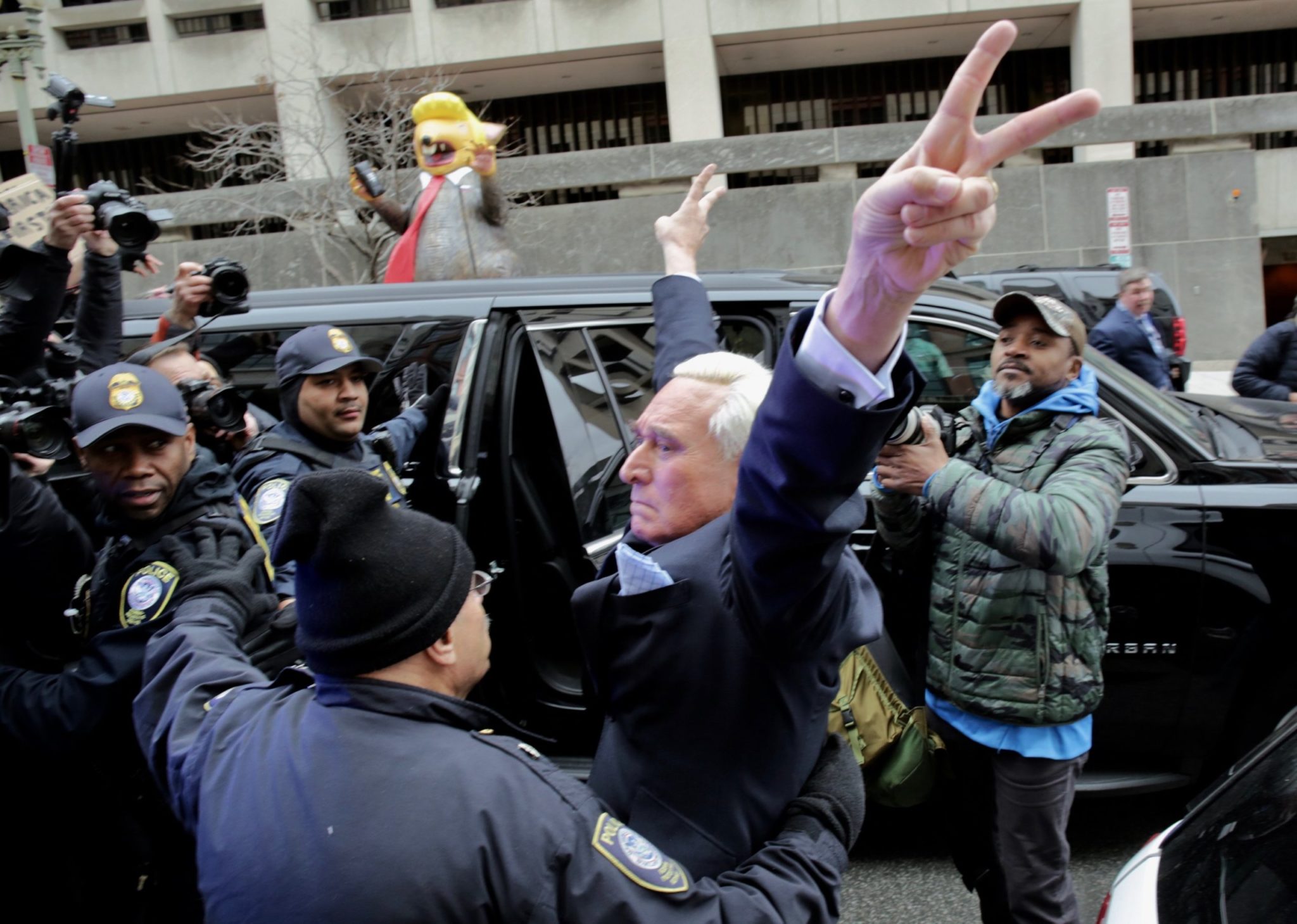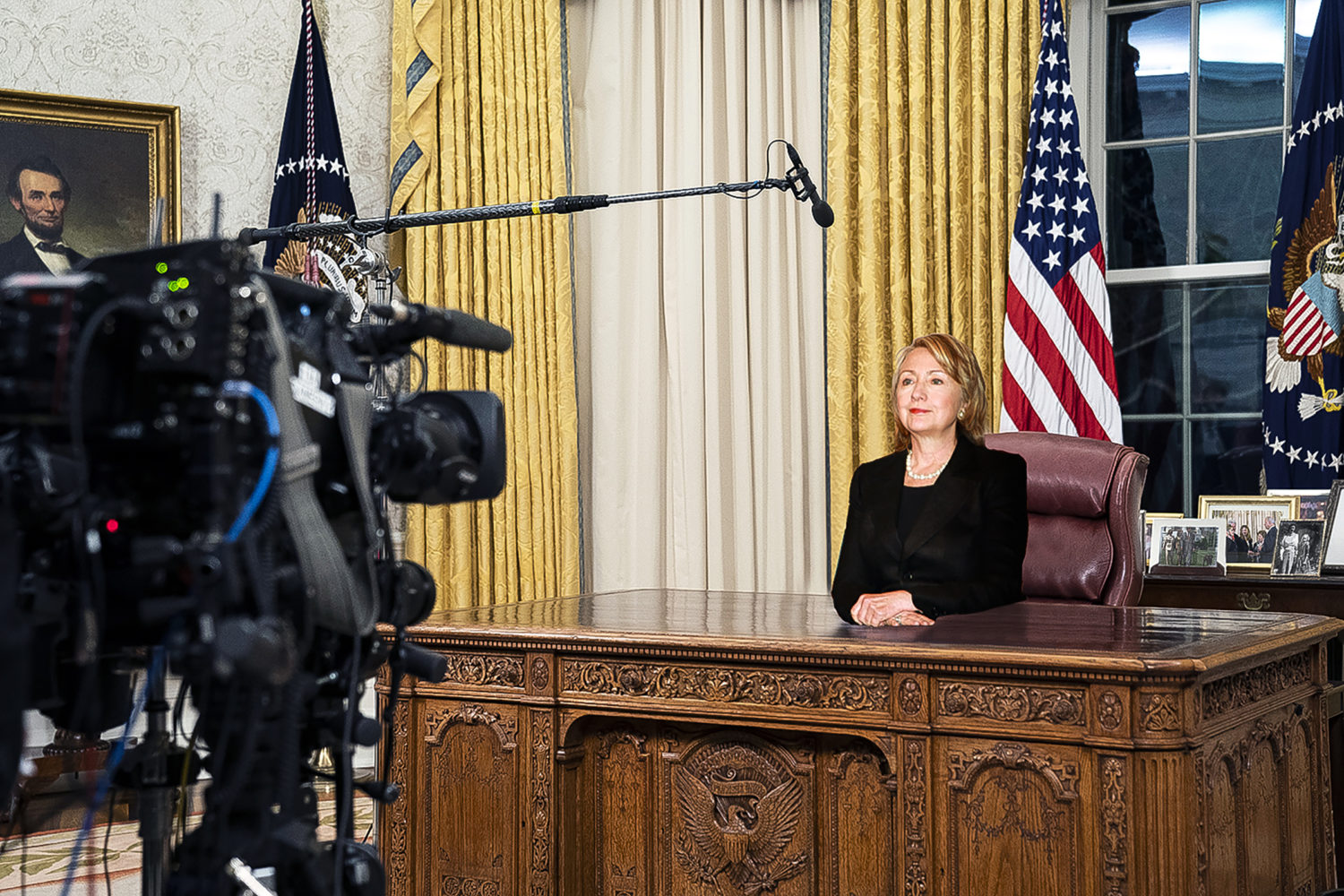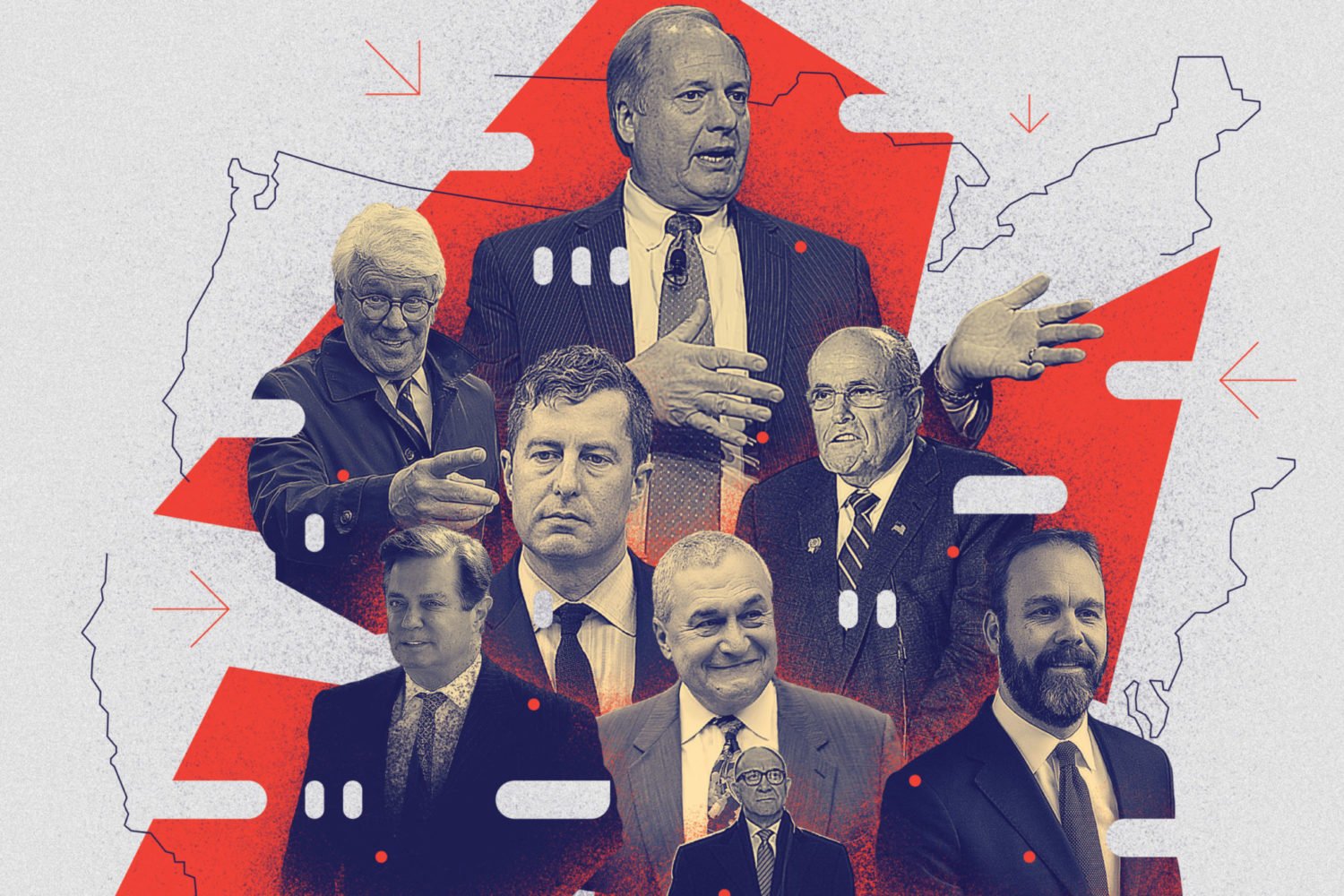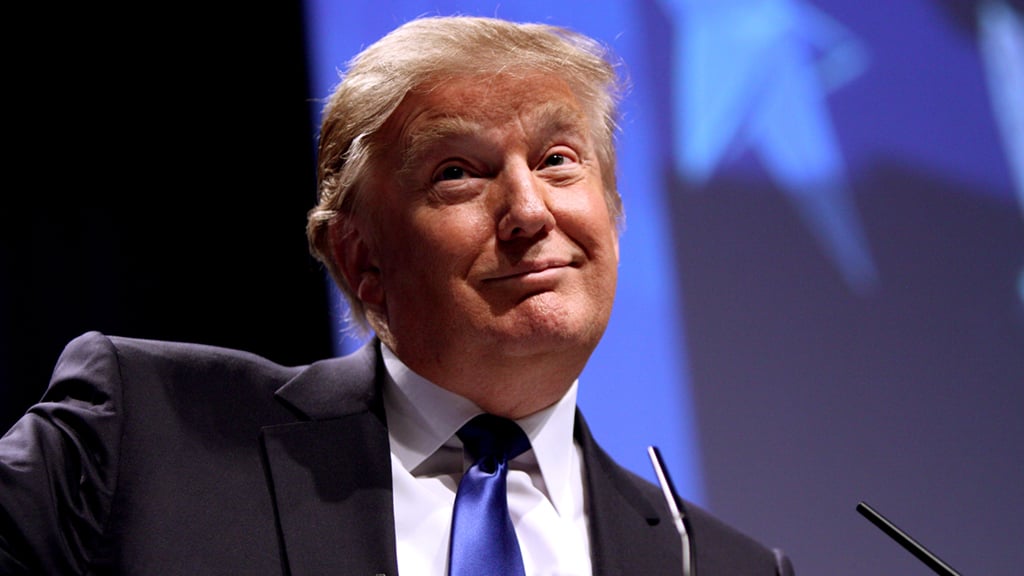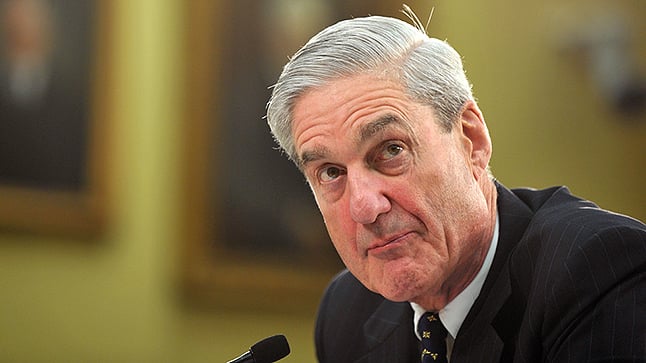During the 18 months of the Special Counsel Robert Mueller‘s investigation, a cadre of legal experts have helped the public decipher the tight-lipped former FBI chief’s ongoing probe. We’ll be checking in with these “Muellerologists” periodically at Washingtonian.
After Roger Stone‘s arrest on January 25, federal authorities said they’d collected “several terabytes” of data from his email and iCloud accounts. That announcement added an additional riddle: If Mueller’s probe is wrapping up, as some claim, why did they seize so much evidence now? And what does Stone’s arrest suggest about the end-game of Mueller’s probe?
Stone’s arrest suggests “an additional, blockbuster indictment” is soon to come
Nick Akerman, former federal prosecutor in the Southern District of New York and member of the Watergate prosecution team.
The indictment of Roger Stone is significant for three reasons.
First, the charges against Stone are serious. Stone is facing allegations of obstructing a congressional investigation, lying to Congress and witness tampering, a charge carrying a maximum penalty of twenty years in prison. These are not hollow allegations. The indictment’s revelation that “at the time of his false testimony, Stone was still in possession of many of these emails and text messages” suggests that Stone was the subject of a court-ordered electronic surveillance—and that Mueller has additional evidence not referenced in the indictment. Stone’s misplaced reliance on encrypted email and text programs such as WhatsApp not only failed to conceal his criminal conversations but underscores his criminal intent. Stone’s legal team has no viable defense to the charges.
Second, Stone’s indictment is the coming attraction to an additional, blockbuster indictment, one that will charge members of the Trump campaign with knowingly participating in the conspiracy (charged in July 2018) of 12 Russian intelligence officers. The object of that conspiracy “was to hack into the computers of U.S. Persons and entities involved in the 2016 U.S. presidential election, steal documents…and stage releases of the stolen documents.” The Stone indictment references two critical dates when there was likely coordination between the Russian government and the Trump campaign: July 22, 2016, Wikileaks released hacked emails just as the Democratic Convention began; and October 7, 2016, 30 minutes after the release of Trump’s infamous Access Hollywood tape, when Wikileaks released the emails of John Podesta. By virtue of the strategic timing and their laser-focused impact, it is inconceivable that these releases were not coordinated with the Trump campaign.
Third, the FBI’s recently seized “several terabytes of information” may link Stone to still more people involved in the July 22nd and October 7th releases. Mueller will be looking to see if this data provides valuable evidence on other co-conspirators, such as Guccifer 2.0, or the other Trump campaign officials who are referenced (but not named) in the Stone indictment.
Given this state of the evidence, and Mueller’s need to review all of the physical evidence seized from Stone, there is no way Mueller is “wrapping up” his investigation any time soon.
Trump associates “could be charged with conspiracy to defraud the United States”
Barbara McQuade, professor at University of Michigan Law School and former United States Attorney for the Eastern District of Michigan.
The disclosure that Mueller has terabytes of information relating to Roger Stone may or may not indicate that more charges are likely against him. Prosecutors likely already had obtained his communications, such as emails and text messages, from service providers. The recent searches may turn up additional documents that show additional crimes by Stone or others.
The indictment also hints at potential future charges against Stone and other Trump associates. The indictment states that Russia’s hacking of the Democratic National Committee was made public in June, that Wikileaks released stolen emails in July, and that a senior Trump campaign official was directed to contact Stone about additional releases planned by Wikileaks. The indictment further indicates that Person 1 (believed to be Jerome Corsi) suggested coordination of messaging that “‘HRC old, memory bad, has stroke’” to coincide with an upcoming email dump.”
It is not hard to imagine a superseding indictment that would add Stone, Corsi and others to the indictment that Mueller has already charged against 12 Russian intelligence officers with conspiracy to defraud the United States by hacking, stealing and staging the release of stolen emails. Even if members of the Trump campaign did not participate in the hacking and stealing, they could still be charged in a conspiracy if they participated in staging the release of the emails. If Trump associates advised timing the release of emails to distract from the Access Hollywood tape, for example, those individuals or the campaign as an entity could be charged with conspiracy to defraud the United States.
Stone’s indictment suggests “a level of coordination” with “an ally of Russian intelligence”
Harry Sandick, defense attorney and former federal prosecutor for the Southern District of New York.
Roger Stone’s arrest was rumored for several months: He himself made statements that suggested he had a pipeline to Julian Assange. However, additionally, we did see a hint from Mueller in paragraph 12 of the indictment. This paragraph alleges that a senior Trump campaign official was directed to reach out to Stone to discuss possible future leaks by Wikileaks. This is significant, because while such communications wouldn’t necessarily be illegal, it would suggest a level of coordination between the Trump campaign and Wikileaks (an ally of Russian intelligence) that Trump has never disclosed.
The Mueller investigation could still be in its final months, despite Stone’s arrest. Prosecutors from the US Attorney’s Office in DC joined the Stone prosecution team, suggesting they will work on the case if the Mueller probe ends. However, it is also possible the evidence seized from Stone will give rise to new charges against Stone or others. It is too soon to say. It will, at a minimum, take some time to review the terabytes of information. As we saw with the Michael Cohen search warrant, some of these documents may be relevant, but many may have no relevance to the investigation. It is hard for me to imagine that Mueller views Stone—with a lifetime of “dirty tricks” behind him—as a cooperating witness.
“Stone’s indictment does not complete the circle”
Patrick Cotter, defense attorney, former federal prosecutor, and a trial prosecutor in the case US v. John Gotti.
Stone is an important link in the circle that links the Trump campaign and the clearly established Russian interference effort in 2016. His indictment, and the evidence upon which it is based, is a very important development. But Stone’s indictment does not complete the circle.
Stone allegedly acted as a communications channel between Wikileaks and the Trump campaign to coordinate their efforts: Stone conveyed Assange’s plans to the campaign (if not Trump himself), and Stone took direction about what to say back to Assange. That is a pretty good definition of “collusion” between Trump World and Assange/Wikileaks, to use the popular (though non-legal) term. This matters because Mueller seems to also be building a strong case that the Wikileaks email dumps were the product of Russian hacking.
What would be needed to complete the circle of Trump/Russia? Sufficient and reliable evidence that the Trump campaign realized that the assistance they were receiving from Wikileaks—and which they were coordinating with Wikileaks about—was the product of Russian efforts.
Of course, there is a great deal of circumstantial evidence that suggests Trump knew exactly that: Trump publicly asked “Russia” to steal Clinton emails; Wikileaks’ ties to Russian hackers; and the simple fact that Wikileaks was clearly trying to help Trump. Circumstantial evidence is admissible and potentially sufficient evidence in any criminal case.
But what is missing thus far is any direct evidence of knowledge by Trump and his allies that they knew—at the time—that Assange and Wikileaks were simply acting as a false front (hack-launderers?) for the Russian-directed “assistance” to Trump. Should Stone ever choose to cooperate—highly unlikely—then perhaps he could complete the circle himself.
Finally, Acting Attorney General Matthew Whitaker’s peculiar statement that Mueller is almost done with his investigation is bizarre and inappropriate. Inappropriate because it does not help the DOJ investigation. And wrong because any investigator who just received “terabytes” of data from a now-indicted target would be derelict in his or her duty to close the investigation before analyzing that evidenceAny investigator who just received “terabytes” of data from a now-indicted target would be derelict in his or her duty to close the investigation before analyzing that evidence. So Whitaker’s statement is not just inappropriate: It’s almost certainly wrong.
“The Mueller investigation has developed evidence of collusion”
Alex Whiting, professor at Harvard Law School and former federal prosecutor with the Criminal Section of the Civil Rights Division and the US Attorney’s Office in Boston.
The Stone indictment indicates that the Mueller investigation has developed evidence of collusion between the Trump campaign and foreign sources of influence, including the Russians. The indictment alleges that after the first release of hacked DNC emails by Wikileaks—when it was already publicly known that the Russians had done the hacking—members of the Trump campaign asked Stone to obtain information about future releases from Julian Assange. These actions could amount to criminal violations of campaign finance laws, which prohibit the solicitation of a thing of value (the DNC emails qualify) from a foreign source.
Whether anyone in the campaign will be charged with such violations is a separate question. Short of bringing charges, Mueller could include the information he has obtained in his report to the Attorney General, which may or may not find its way to Congress. How much Trump himself might be implicated in these activities is also still largely unknown.

